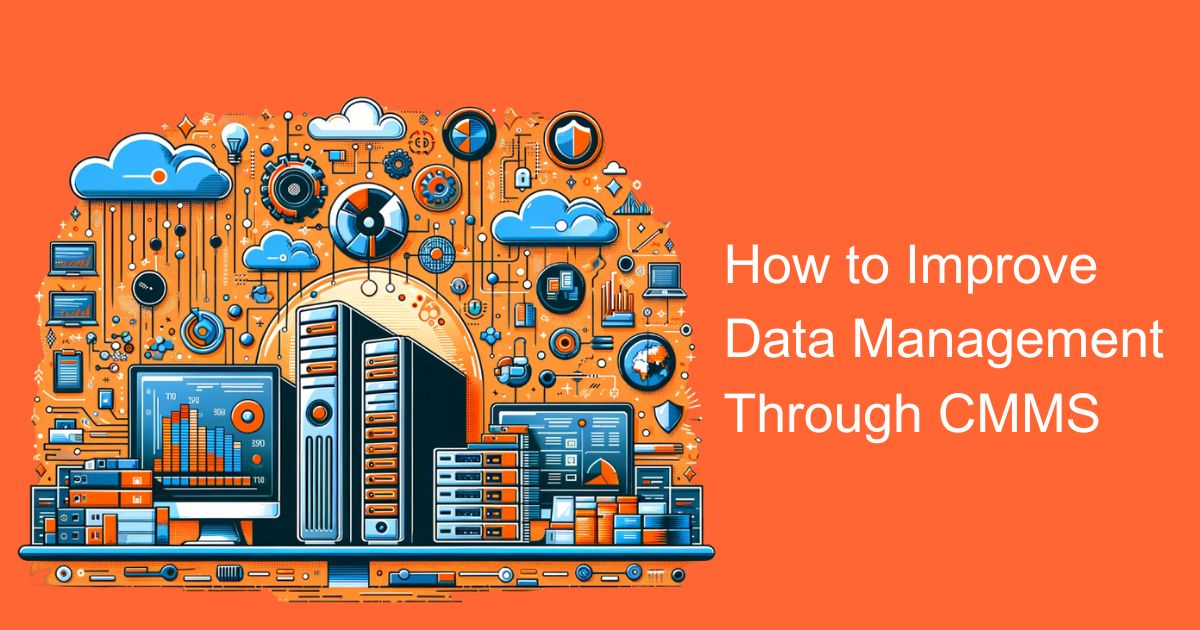Introduction
In today’s data-driven world, organizations across the globe are increasingly recognizing the importance of efficient data management. This is especially true in India, where businesses are striving to streamline their operations and make data-backed decisions to gain a competitive edge. Computerized Maintenance Management Systems (CMMS) are emerging as a crucial tool for enhancing data management practices in various industries across the country. In this blog post, we will delve into how to improve data management through CMMS in Indian context and explore.
The State of Data Management in India
India’s rapid digital transformation has led to an explosion of data in recent years. According to a report by the International Data Corporation (IDC), India’s datacenter market is expected to grow at a compound annual growth rate (CAGR) of 4.2% between 2021 and 2026, reflecting the immense volume of data being generated and stored. However, this data surge poses a significant challenge for organizations in terms of effective management and utilization.
Inefficient data management can result in increased downtime, operational inefficiencies, and higher maintenance costs. This is where CMMS comes into play as a powerful solution to address these challenges and improve overall data management.
The Role of CMMS in Data Management
CMMS is a software application designed to simplify and automate maintenance management tasks. It enables organizations to efficiently manage assets, schedule maintenance, track work orders, and record maintenance activities. While traditionally used for maintenance purposes, CMMS can also be leveraged to enhance data management practices in several ways:
Centralized Data Repository:
CMMS serves as a centralized repository for all maintenance-related data, including equipment information, maintenance history, and spare parts inventory. This centralization streamlines data storage and retrieval, making it easier for organizations to access critical information when needed.
Real-time Updates:
CMMS allows for real-time updates of maintenance activities and asset data. This ensures that all stakeholders have access to the latest information, enabling better decision-making and reducing the risk of outdated data.
Predictive Maintenance:
With the help of data analytics and machine learning algorithms, CMMS can predict equipment failures and recommend preventive maintenance actions. This proactive approach not only minimizes downtime but also optimizes asset performance.
Compliance and Reporting:
CMMS can generate detailed reports on maintenance activities, compliance with regulations, and equipment performance. This data can be invaluable for organizations operating in regulated industries, such as manufacturing or healthcare, to ensure adherence to standards.
Integration Capabilities:
CMMS can integrate with other enterprise systems, such as Enterprise Resource Planning (ERP) and Customer Relationship Management (CRM) software, to provide a holistic view of an organization’s operations. This integration further enhances data management by connecting maintenance data with other business processes.
Benefits of CMMS in the Indian Context
In the Indian context, where diverse industries coexist, CMMS offers specific advantages tailored to local needs:
Cost Savings:
Effective maintenance management through CMMS can significantly reduce operational costs, which is crucial in a cost-sensitive market like India.
Improved Productivity:
CMMS helps organizations maximize equipment uptime and reduce unplanned downtime, leading to increased productivity and competitiveness.
Regulatory Compliance:
Compliance with Indian regulatory bodies, such as the Food Safety and Standards Authority of India (FSSAI) or the Drugs Controller General of India (DCGI), is simplified through CMMS’s reporting and documentation capabilities.
Enhanced Asset Lifespan:
CMMS aids in extending the lifespan of critical assets, a particularly important factor in industries like infrastructure development and energy production.
Scalability:
As India continues to grow as a global manufacturing and IT hub, CMMS can easily scale to accommodate the expanding needs of businesses.
Conclusion
In conclusion, CMMS plays a pivotal role in improving data management practices in the Indian business landscape. Its ability to centralize data, provide real-time updates, predict maintenance needs, ensure compliance, and integrate with other systems makes it a valuable asset for organizations aiming to thrive in the data-driven era. By adopting CMMS solutions, Indian businesses can not only enhance their data management but also stay competitive in a rapidly evolving market.








